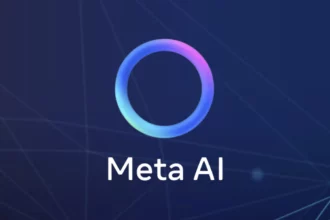Table of Contents
ToggleThe Best Local LLM for Coding
The best local large language models (LLMs) for coding provide privacy, offline access, customization, and cost savings while delivering strong code generation and debugging capabilities. Developers benefit from local LLMs by maintaining control over data and working without internet dependency. Various cutting-edge models and tools enable running these LLMs effectively on local machines.
Why Use Local LLMs for Coding?
- Privacy: Local LLMs keep sensitive code and data on your device, reducing risks of leaks or unauthorized access common with cloud solutions.
- Offline Accessibility: Work uninterrupted without needing an internet connection, ideal for remote or secure environments.
- Customization: Fine-tune models to meet specific languages, frameworks, or project needs, improving relevance and accuracy.
- Cost-Effectiveness: Avoid recurring subscription fees from cloud-based services by running models locally.
Comparison with Cloud-Based LLMs
Cloud LLMs like GitHub Copilot offer seamless integration and large-scale resources but involve data transmission to external servers. Local LLMs might require more setup and hardware resources but excel in data confidentiality and offline work.
Leading Local LLM Models for Coding
| Model | Key Features | Performance |
|---|---|---|
| WaveCoder-Ultra-6.7B (Microsoft) | Instruction-following model; code generation, repair, translation | 79.9 on HumanEval benchmark; comparable to human developers |
| CodeQwen1.5-7B-Chat | Supports 92 languages; long 64K token context for large codebases | Fine-tuned transformer, excels in multilingual code generation |
| WizardCoder-Python-34B-V1.0 | Specialized on 100 billion Python tokens; efficient Python coding | 73.2 benchmark score; outperforms GPT-4 |
| Phind-CodeLlama-34B-v1 | Fine-tuned with instruction-answer pairs; uses Flash Attention 2 | HumanEval pass rate 67.6% general, 69.5% Python variant |
| Moe-2x7b-QA-Code | Mixture of Experts architecture; high accuracy on code Q&A | Open-source and effective in technical discussions |
Local Tooling for Running LLMs
- AnythingLLM: Open-source desktop app prioritizing local privacy with React UI and NodeJS backend.
- GPT4All: Fully offline support, multiple models, enterprise-grade workflow automation.
- Ollama: Runs models locally on macOS, Linux, Windows with CLI/GUI interfaces.
- LM Studio: Desktop app mimicking OpenAI API for Hugging Face models; free for personal use.
- Jan: Open-source ChatGPT alternative; offline-enabled with plugin extensibility.
Use Cases of Local Coding LLMs
- Automate repetitive coding tasks to save time.
- Generate and maintain documentation efficiently.
- Real-time code suggestions for enhanced productivity.
- Refactoring and debugging assistance.
- Explain complex code snippets for learning and review.
- Support for multiple programming languages and styles.
Choosing an LLM: Key Criteria
- Accuracy: Model’s ability to generate correct, efficient code.
- Integration Ease: Compatibility with your existing development workflow.
- Multilingual Support: Number of programming languages supported.
- Resource Use: Hardware requirements and deployment complexity.
- Cost: Open-source vs proprietary, subscription models.
- Reasoning Ability: Complex problem-solving and math support.
Performance Insights and Challenges
Several models shine in benchmarks but code outputs often require developer review and fixes. For example, WaveCoder-Ultra scored 79.9 on HumanEval but still needs result verification. Gemini 2 Flash excels in recalling long-term context and honesty about knowledge gaps, crucial for reliable coding assistance.
Prompt quality significantly influences outcomes. Iterative prompting or chaining fixes initial errors and leverages models better. Different models suit different programming languages—WizardCoder is strong in Python, while CodeQwen1.5 covers many languages.
Summary of Key Takeaways
- Local LLMs offer tangible benefits: privacy, offline use, customization, and reduced costs.
- Top local models combine strong coding benchmarks with diverse language support.
- Choice depends on specific tasks: raw problem solving, fast assistance, or complex debugging.
- Effective prompt engineering enhances code generation success.
- Review and verification of generated code remain essential.
- Keeping models updated and engaging with community resources maximizes benefits.
Best Local LLM for Coding: Your Ultimate Guide to Code Smarter, Not Harder
Ever wondered if you could have a brilliant coding assistant who works quietly inside your own computer, never peeking over your shoulder, and never asking for a cloud subscription fee? Welcome to the world of local Large Language Models (LLMs) for coding—your private coding compadre!
So, what is the best local LLM for coding? It boils down to your needs in privacy, offline access, customization potential, language support, and whether you want raw power or lean efficiency. Some top performers are WaveCoder-Ultra-6.7B, CodeQwen1.5-7B-Chat, WizardCoder-Python-34B-V1.0, Deepseek Coder, and Phind-CodeLlama-34B-v1, each bringing different strengths to the table for your coding adventures.
Discover — Top Open-Source LLMs for Coding in 2025 and Their Use Cases
Why Bother with Local LLMs?
We know cloud-based LLMs are handy; after all, who doesn’t love an internet-powered magic wand? But local LLMs have something special—your data never leaves your machine. In a world juggling privacy laws, unpredictable internet connections, and subscription fees, the perks are hard to ignore:
- Privacy: Sensitive code stays put, safe from prying eyes or data breaches.
- Offline Capability: No WiFi? No problem. Code or debug wherever you please.
- Customization: Tweak the model to suit your coding language, framework, or style.
- Cost Savings: Avoid Netflix-like monthly fees—local means you pay once with your hardware.
Local LLMs essentially put the power back into your hands, literally.
LLMs in the Coding Arena: Cloud vs Local
Developers have already adopted cloud LLMs to speed up coding, but understanding the nuances between cloud and local can boost productivity. Cloud models like Google’s Gemini 2 Flash, OpenAI’s GPT-4o Mini, and Anthropic’s Claude 3.5 Sonnet poke at coding problems with different styles and success rates. However, local models prioritize control and customization over bells and whistles.
“Discover the best LLM for coding – whether you’re generating code or just asking questions, understanding cloud vs local LLMs can make you more effective.”
Naming a Few Local Coding Rockstars
Let’s introduce the local champions, coding ninjas you can keep in your own CPU:
- WaveCoder-Ultra-6.7B (Microsoft): Specializes in generating, summarizing, translating, and repairing code. Scores impressively high—about 79.9 on the HumanEval benchmark. Consider it your Swiss army knife for coding tasks.
- CodeQwen1.5-7B-Chat: Multi-language marvel whipped up for large codebases (64K token context window!) with features like bug fixes and text-to-SQL translation.
- Deepseek Coder: Ranges from lightweight (1.3B parameters) to behemoth (33B parameters). Focuses on project-level code infilling in both English and Chinese.
- WizardCoder-Python-34B-V1.0: Python fanatic’s dream, trained on a staggering 100 billion Python tokens. Outperforms GPT-4 in benchmarks — now that’s impressive!
- Phind-CodeLlama-34B-v1: Fine-tuned with real problem-solving tasks for impressive pass rates on HumanEval, cozy with instruction-answer style prompts.
Testing the Waters: How Do These Models Stack Up?
Imagine putting a shiny new LLM to the ultimate test: can it generate a full C# SDK from an OpenAPI spec? In one challenge, GPT-4o Mini took home the gold, churning out two well-structured code files and demo code—almost ready to roll with a few tweaks here and there.
Gemini 2 Flash tried hard but stumbled on missing endpoint implementations and outdated JSON libraries. Claude 3.5 Sonnet took a gentler approach, suggesting external tools instead of diving in. Lesson? Even the best sometimes need human elbow grease.
Slippery Bugs and the Notorious URL Trailing Slash
Here’s a classic: a 404 caused by the BaseAddress lacking a trailing slash, paired with endpoint fragments starting with a leading slash. We’ve all felt the sting of this elusive bug. The models tried their best to spot it.
- Gemini 2 Flash suggested adding HTTP headers but missed the real issue.
- GPT-4o Mini offered more troubleshooting tips but still no slash awareness.
- Claude 3.5 Sonnet stuck to generic advice about JSON packages.
Turns out, the best answer came from the old standby—Stack Overflow. Sometimes, real human wisdom beats AI suggestions!
Memory Lane with LLMs: Remembering Past Bugs
Ever wish your coding assistant remembered past mistakes and solutions? Gemini 2 Flash felt that too. It provided a deep Stack Overflow link with a clear summary and sample code—talk about helpful! GPT-4o Mini also recalled the info, but you had to nudge it for links. Claude 3.5 Sonnet only handed out the link.
Pros and Cons of Popular Local Coding LLMs
| Model | Strengths | Limitations |
|---|---|---|
| WaveCoder-Ultra-6.7B | High code understanding, multi-task (generation, summary, translation, repair), great benchmark scores. | Not the absolute top in every category, moderate computational needs. |
| CodeQwen1.5-7B-Chat | Long context support, multi-language, versatile (text-to-SQL, bug fixes). | Newer, less community support. |
| Deepseek Coder | Great for bilingual projects, project-level code completion, scalable parameter sizes. | May require fine-tuning for specialized needs. |
| WizardCoder-Python-34B-V1.0 | Python expert, outperforms many giants on benchmarks, efficient at Python code generation. | Python-only, large memory and hardware requirements. |
| Phind-CodeLlama-34B-v1 | Instruction-answer based training, high pass rates, efficient training tech. | Higher resource consumption, less specialized to specific languages. |
Running Your Local LLM: Top Tools to Try
No need to be a tech wizard to get these models running. Several tools make local deployment surprisingly painless:
- AnythingLLM – Open-source desktop platform that tackles documents and code safely on your machine.
- GPT4All – Offers offline operation, running 1,000+ open-source models on your local rig. Provides enterprise options too.
- Ollama – Friendly GUI and CLI experience for macOS, Linux, and Windows. Integrates easily with your workflows.
- LM Studio – A desktop app mimicking OpenAI API, supports various models, enabling local document interaction.
- Jan – Free, open-source ChatGPT clone that respects privacy and offers plugin support.
When and Why Should You Choose Local LLMs for Coding?
Think about your workflow and values. Do you want your code generation, debugging, and language translation tucked privately away and always available? Or are you okay with cloud models that might have a better snap for certain tasks but require an internet connection and subscriptions? The choice depends on the balance you seek:
- Customization: Local models let you fine-tune and adapt more deeply.
- Speed and Latency: Local runs super fast once set up; no waiting for a remote server.
- Cost: One-time hardware investment vs recurring cloud fees.
- Data Sensitivity: Keep everything on-premise for total peace of mind.
Prompting and Performance: Getting the Best from Your LLM
Even the best LLM isn’t a mind reader. How you phrase your prompts shapes the magic. Iterative prompting and prompt chaining can turn “meh” outputs into “aha” moments. Remember, no LLM writes perfect code on the first try; think of them as your code assistant, not the lead developer.
Modern Coding Challenges for LLMs and What They Teach Us
Coding with AI is an adventure. From generating SDKs to tracking down elusive bugs, discovering long-term solutions, and trying to keep up with fast-evolving tech stacks like .NET 9, local LLMs show strengths and limits. For instance:
- Gemini 2 Flash: Plays it safe by admitting knowledge gaps—better than confidently hallucinating false info.
- GPT-4o Mini: Energetic but prone to hallucinations, especially with futuristic tech details.
- Claude 3.5 Sonnet: Programmer-friendly but sometimes leaves you needing to fill in blanks.
Final Thoughts: Picking Your Coding Sidekick
There isn’t a single “best” local LLM for coding—it depends on your languages, coding style, hardware, and privacy priorities. Here’s a quick recap:
- Need multi-language support with a long memory? Check out CodeQwen1.5-7B-Chat and Phind-CodeLlama.
- Python-centric and benchmarks matter? WizardCoder-Python-34B-V1.0 shines.
- Want a well-rounded performer with solid code repair? WaveCoder-Ultra-6.7B is solid.
- Prefer experience with local tooling and strong community? Ollama, LM Studio, and GPT4All bring user-friendly interfaces to your desk.
Remember, these models evolve fast. What’s cutting-edge today might be old news tomorrow. Keeping an eye on updates and engaging with communities will ensure your local LLMs stay sharp.
Questions to Ponder
- How vital is your code’s privacy versus convenience?
- Will your local hardware handle heavy LLMs like WizardCoder-Python-34B?
- Can you invest time in tuning and crafting prompts for best output?
- How do you balance cost, speed, and accuracy in coding support?
Choosing a local LLM for coding is not just picking software; it’s crafting a partnership with a tireless assistant who learns, generates, and troubleshoots—right where you want it, under your control.
Ready to dive into local LLMs for coding? WaveCoder, CodeQwen, WizardCoder, and friends await your command. Your next big speed-up in code might just be a model away!
What makes GPT-4o Mini the best local LLM for coding tasks?
GPT-4o Mini produces the most complete and runnable code among tested models. It generates fewer files with cleaner structure and even provides example usage. Although not perfect, it needs less correction to work properly.
Why do many local LLMs generate code using NewtonSoft.Json instead of System.Text.Json?
Most models default to NewtonSoft.Json because it is well-known and widely used. However, System.Text.Json is newer and preferred in modern C# projects. LLMs often miss updating this to the recommended library.
Why do generated API SDKs often have issues with leading or trailing slashes in URLs?
LLMs frequently add a leading slash to endpoint fragments, which causes routing errors if the base URL lacks a trailing slash. This mismatch can result in 404 errors requiring manual fix in the generated code.
Can current local LLMs reliably debug API URL problems like trailing-slash bugs?
No, tested models like Gemini 2 Flash and GPT-4o Mini did not identify the trailing slash issue causing 404 errors. They provided useful hints but missed the core problem, showing some bugs exceed current LLM debugging abilities.
Do local LLMs effectively remember past solutions or conversations to aid coding?
Local LLMs still have limitations in maintaining long-term memory of previous context or fixes. They may fail to recall specific past bugs or solutions unless that information is reintroduced during interaction.





